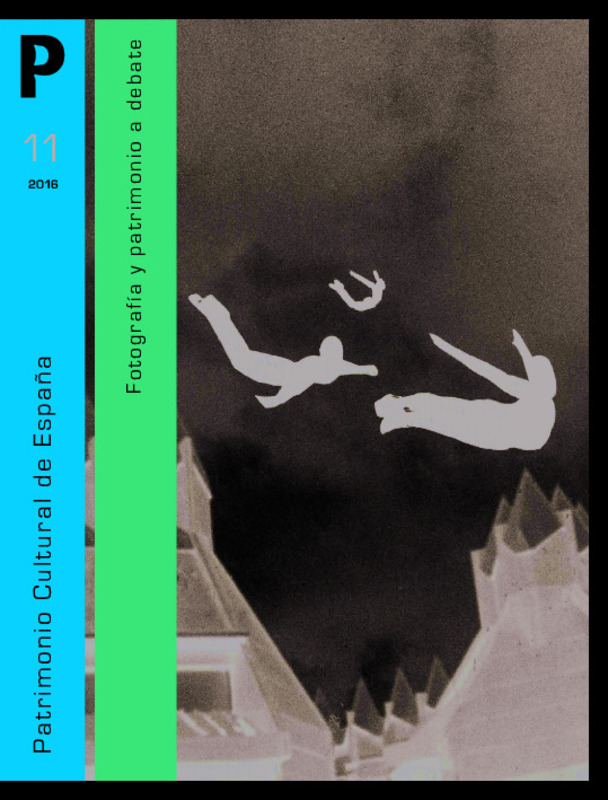JavaScript is disabled for your browser. Some features of this site may not work without it.
Buscar en RiuNet
Listar
Mi cuenta
Estadísticas
Ayuda RiuNet
Admin. UPV
Notas sobre el álbum de familia, la memoria y el olvido
Mostrar el registro sencillo del ítem
Ficheros en el ítem
| dc.contributor.author | Vicente-Mullor, Pedro
|
es_ES |
| dc.date.accessioned | 2024-01-05T19:01:56Z | |
| dc.date.available | 2024-01-05T19:01:56Z | |
| dc.date.issued | 2016 | es_ES |
| dc.identifier.issn | 2386-6586 | es_ES |
| dc.identifier.uri | http://hdl.handle.net/10251/201540 | |
| dc.description.abstract | [EN] The family album is an object of emotional and culturally complex meanings, a set of domestic practices that combines memory, nostalgia, past hurts, happiness, dreams, the unknown, imagined, losses and findings, all at the same time. This type of everyday photography is a kind of talisman in which the past is perceived as tight, still, deposited in a certain place, so you can re-live and experience, infinitely. Although photography has traditionally been understood as a container for memory, and especially family and personal memory, it also fulfills another function besides saving the memories, it produces them. This production of memories defines the constructed and constructive character of the photographs of the family album, and allows us to reorder our history, so that we can eliminate aspects and moments that we want to forget, or not remember, but also to live, organize, present, represent, remember, reorganize and revive our lives with our own rules through the images that make up our album. | es_ES |
| dc.description.abstract | [ES] El álbum de familia es un objeto de significados emocional y culturalmente complejos, un conjunto de prácticas domésticas que conjuga memoria, nostalgia, heridas del pasado, felicidad, sueños, lo desconocido, lo imaginado, pérdidas y hallazgos, todo ello al mismo tiempo. Este tipo de fotografía tan cotidiana es una especie de talismán en el cual el pasado es percibido como algo estanco, quieto, depositado en un determinado lugar, de forma que puede volver a vivirse y experimentarse, infinitamente. Aunque la fotografía se ha entendido tradicionalmente como un contenedor para la memoria, y especialmente la memoria familiar y personal, también cumple con otra función además de la de guardar memorias, las produce. Esta producción de memorias define el carácter construido y constructivo de las fotografías del álbum de familia, y que nos permite reordenar nuestra historia, de tal forma que podemos eliminar aspectos y momentos que queremos olvidar, o no recordar, pero también vivir, organizar, presentar, representar, recordar, reorganizar y revivir nuestras vidas con nuestras propias reglas a través de las imágenes que componen nuestro álbum. | es_ES |
| dc.language | Español | es_ES |
| dc.publisher | Ministerio de Educación, Cultura y Deporte | es_ES |
| dc.relation.ispartof | Patrimonio Cultural de España | es_ES |
| dc.rights | Reserva de todos los derechos | es_ES |
| dc.subject | Álbum de familia | es_ES |
| dc.subject | Fotografía | es_ES |
| dc.subject | Memoria | es_ES |
| dc.subject | Olvido | es_ES |
| dc.subject | Fotografía familiar | es_ES |
| dc.subject | Family | es_ES |
| dc.subject | Memory | es_ES |
| dc.subject | Oblivion | es_ES |
| dc.subject | Album | es_ES |
| dc.subject | Subjectivity | es_ES |
| dc.subject.classification | DIBUJO | es_ES |
| dc.title | Notas sobre el álbum de familia, la memoria y el olvido | es_ES |
| dc.type | Artículo | es_ES |
| dc.rights.accessRights | Abierto | es_ES |
| dc.contributor.affiliation | Universitat Politècnica de València. Facultad de Bellas Artes - Facultat de Belles Arts | es_ES |
| dc.description.bibliographicCitation | Vicente-Mullor, P. (2016). Notas sobre el álbum de familia, la memoria y el olvido. Patrimonio Cultural de España. (11):130-139. http://hdl.handle.net/10251/201540 | es_ES |
| dc.description.accrualMethod | S | es_ES |
| dc.relation.publisherversion | https://www.libreria.culturaydeporte.gob.es/libro/fotografia-y-patrimonio-a-debate_4559/ | es_ES |
| dc.description.upvformatpinicio | 130 | es_ES |
| dc.description.upvformatpfin | 139 | es_ES |
| dc.type.version | info:eu-repo/semantics/publishedVersion | es_ES |
| dc.description.issue | 11 | es_ES |
| dc.relation.pasarela | S\338898 | es_ES |






